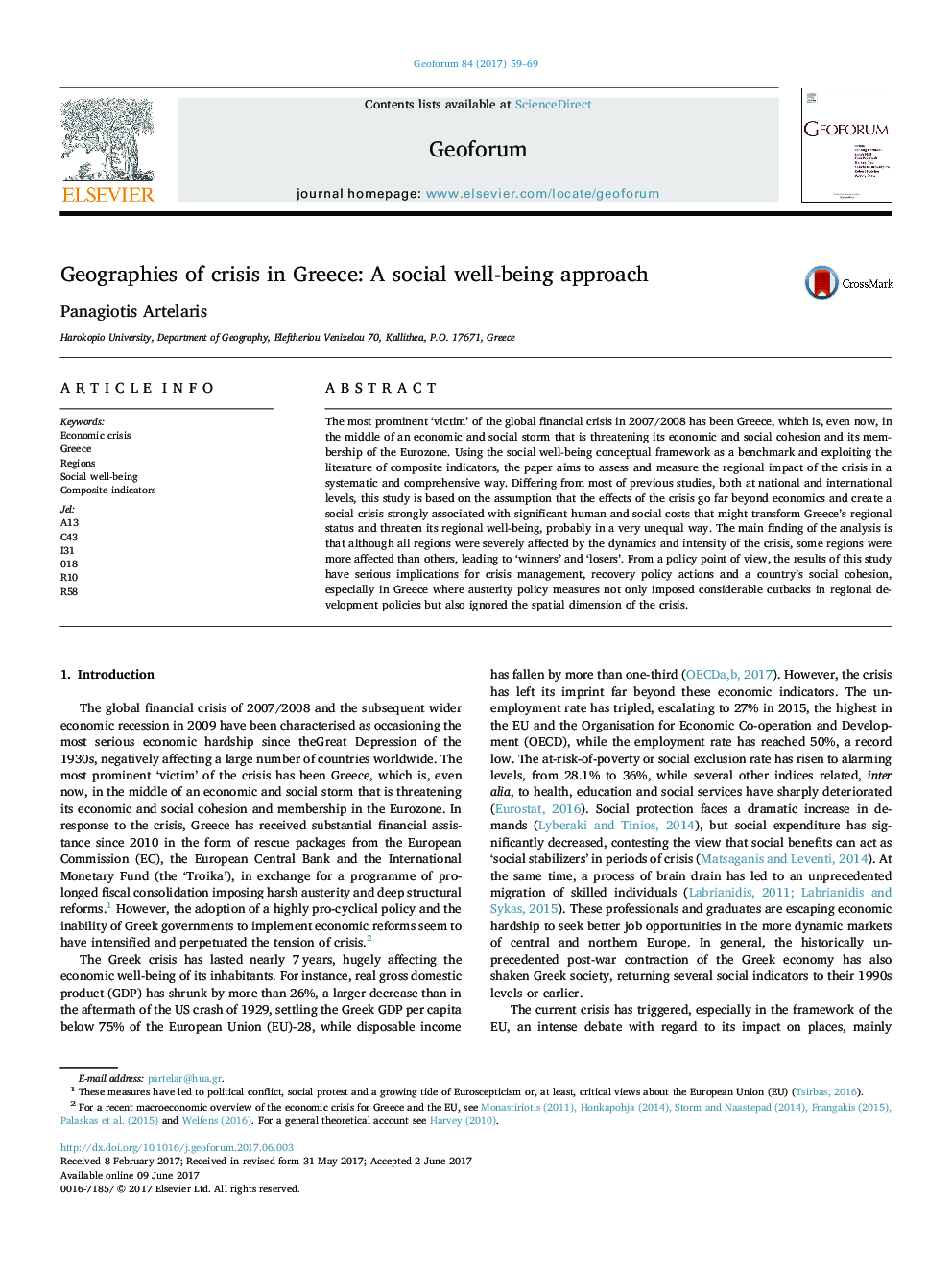| Article ID | Journal | Published Year | Pages | File Type |
|---|---|---|---|---|
| 5073276 | Geoforum | 2017 | 11 Pages |
â¢The socio-spatial impact of the crisis is evaluated for the first time.â¢The study provides evidence from the most prominent victim of the crisis, Greece.â¢The study focuses on a social well-being approach using composite indicators.â¢The results reveal the 'winners' and 'losers' of the crisis.â¢The results encourage the implementation of a sound regional policy.
The most prominent 'victim' of the global financial crisis in 2007/2008 has been Greece, which is, even now, in the middle of an economic and social storm that is threatening its economic and social cohesion and its membership of the Eurozone. Using the social well-being conceptual framework as a benchmark and exploiting the literature of composite indicators, the paper aims to assess and measure the regional impact of the crisis in a systematic and comprehensive way. Differing from most of previous studies, both at national and international levels, this study is based on the assumption that the effects of the crisis go far beyond economics and create a social crisis strongly associated with significant human and social costs that might transform Greece's regional status and threaten its regional well-being, probably in a very unequal way. The main finding of the analysis is that although all regions were severely affected by the dynamics and intensity of the crisis, some regions were more affected than others, leading to 'winners' and 'losers'. From a policy point of view, the results of this study have serious implications for crisis management, recovery policy actions and a country's social cohesion, especially in Greece where austerity policy measures not only imposed considerable cutbacks in regional development policies but also ignored the spatial dimension of the crisis.
